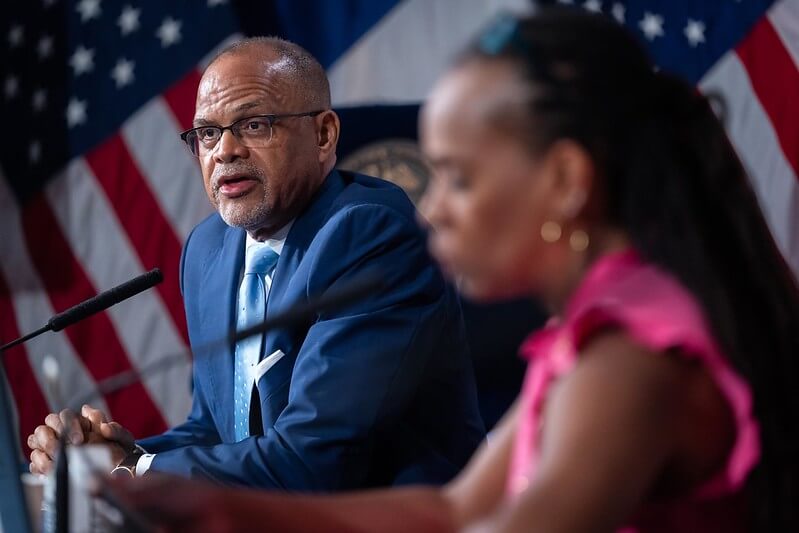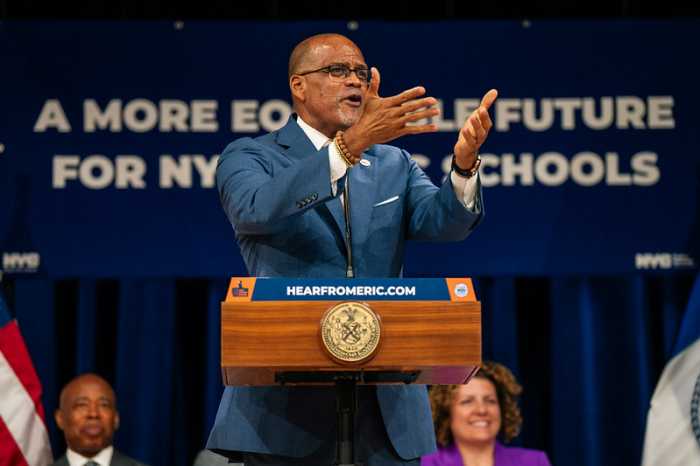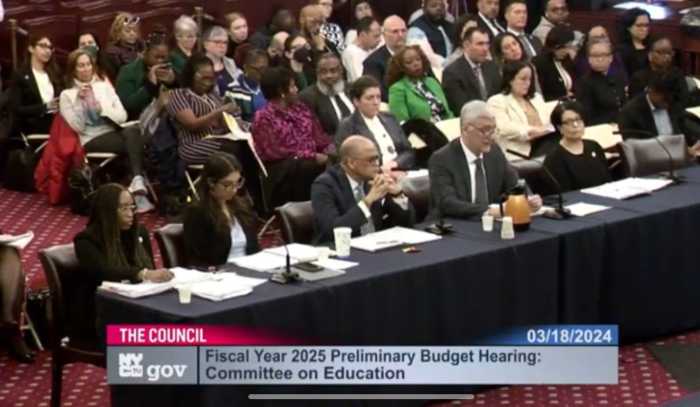Last week, the Department of Education (DOE) announced it will send an additional $9.6 million to schools with a significant population of homeless students. The additional funds are from adjustments made following a policy change to the school-budget system Fair Student Funding on how Students in Temporary Housing are calculated to finance the city’s public schools.
It is believed that the adjustments are the result of Comptroller Brad Lander’s Nov. 17 letter to Schools Chancellor David E. Banks where he pointed out that the previous policy was “purposely creating resource scarcity” by withholding $11 million from schools serving homeless students.
Despite this apparent relief, there are those who believe the new funds are not enough, and even call this victory “bittersweet,” particularly in light of the ongoing mayoral budget cuts.
Kaliris Salas-Ramirez, a member of the Fair Student Funding Working Group and the DOE’s Panel for Education Policy. (PEP), said she is grateful that the changes were able to take place when all the PEP members were able to collectively implement them when the majority of them realized that the previous policy was not working for DOE students. Despite this, Salas-Ramirez still sees challenges up ahead.
“The only issue is after Oct. 31, we’ll continue to get students who need that same amount of money. If they don’t overturn or amend the 60-day rule and you have kids bouncing around from school to school, that really impacts school budgets,” she said. “We’re still be putting schools in a very difficult financial space. So, it’s bittersweet.”
David Bloomfield, the professor of Education Leadership, Law & Policy Brooklyn College and The CUNY Graduate Center, called this victory less than bittersweet: “Budgets are only one factor in providing quality instructional and support services to migrant and other students. This small recalculation is unlikely to reflect constantly changing situations in schools and the pressures on school-based personnel to adequately meet these challenges.”
Another education advocate, Paullette Healy, a Special Education and D75 Advocate, sat though several meetings with many others who wanted to see the policy change, including Advocates for Children and the Immigration Coalition, to put pressure on the Chancellor.
Although Healy says there was confidence that the changes would be made, there is still more fighting to do as mayoral budget cuts set in over the city’s public schools. In addition, Healy is eyeing the Chancellor’s decision, announced on Wednesday, to cut about $97 million from D75 schools, which could lead to these schools losing hundreds of paraprofessionals.
“I think the Chancellor thought he was pulling a fast one with the Fair Student Funding shift,” she said. “But I don’t think [the Chancellor] expected anyone to look closely at it. I’m very grateful for the team over at the Comptroller’s office that they caught this, and we were able to implement some interventions very quickly. But he’s trying to pull another fast one by telling people the easiest move is to cut D75 schools, and its because they’re not funded through Fair Student Funding; they’re funded through SAMs (Student Allocation Memorandums).”

Even Brooklyn City Council Member Alexa Aviles expressed gratitude over the city reversing course, while just as quickly acknowledging the proposed budget cuts to D75.
“Where one thing seems hopeful, another thing emerges,” the Councilwoman explained.
She also says she wonders why only $9.6 million is being projected by the DOE when ther Comptroller’s office calculated $11 million back in November.
When amNewYorkMetro asked, Brownstein replied that the DOE does not “comment on how the Comptroller does his math.”
As the Fair Student Funding controversy dies down and the focus changes to the budget cuts and the cuts to the D75 schools, the city’s education advocates and even elected officials are gearing up for what could be an intense new year.
“A lot of fighting,” Salas-Ramirez said. “Depending on what happens with this new budget modification, the Department of Education will be losing $547 million dollars and that ultimately does impact our programming and what we can provide outside of their budgets.”
Aviles seems to be preparing for January when she and her colleagues at City Hall will be finding out more about the budget cuts, and face the tensions likely to come with them.
“There’s certainly going to be pushback where the cuts are heading,” she says. “We’re going to see a lot of alarm and discontent when we hear more information coming out. So we’ll be busy.”
In a statement, the DOE’s Nicole Brownstein, director of media relations, noted that the policy change went into effect earlier this month.
“Due to the influx of newcomers, we’ve taken a hard look at our policy and revised it so we can more quickly provide resources to our schools to support our newly arriving students,” Brownstein said. “For this school year, we updated allocations to schools based on their Oct. 31, 2023, enrollment of students in temporary housing, to account for the number of students who have entered our system. We are pleased to say the funding was allocated to schools in early December.”
In a statement, Comptroller Lander said the following: “I am pleased to learn that Chancellor Banks has agreed to fully fund schools that welcomed new students from families seeking asylum by extending the enrollment cutoff date for students in temporary housing to Oct. 31—as my office requested in our letter on Nov. 17. This move is crucial for schools serving students experiencing homelessness, including migrant students who face the challenges of learning a new language, adjusting to a new culture, and finding a permanent home.”
Read more: Queens Man Indicted for Assaulting Israeli Tourist in NYC



































